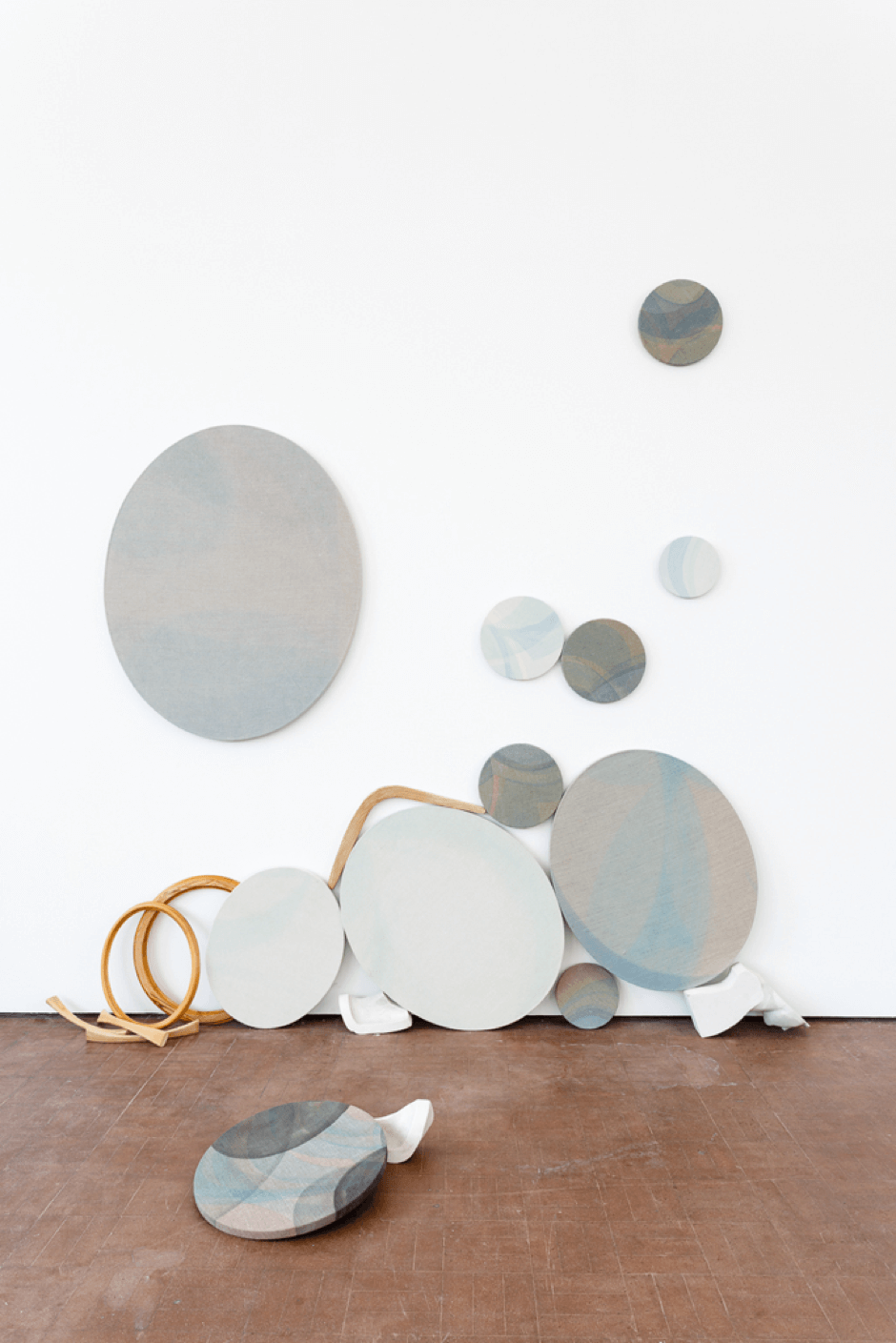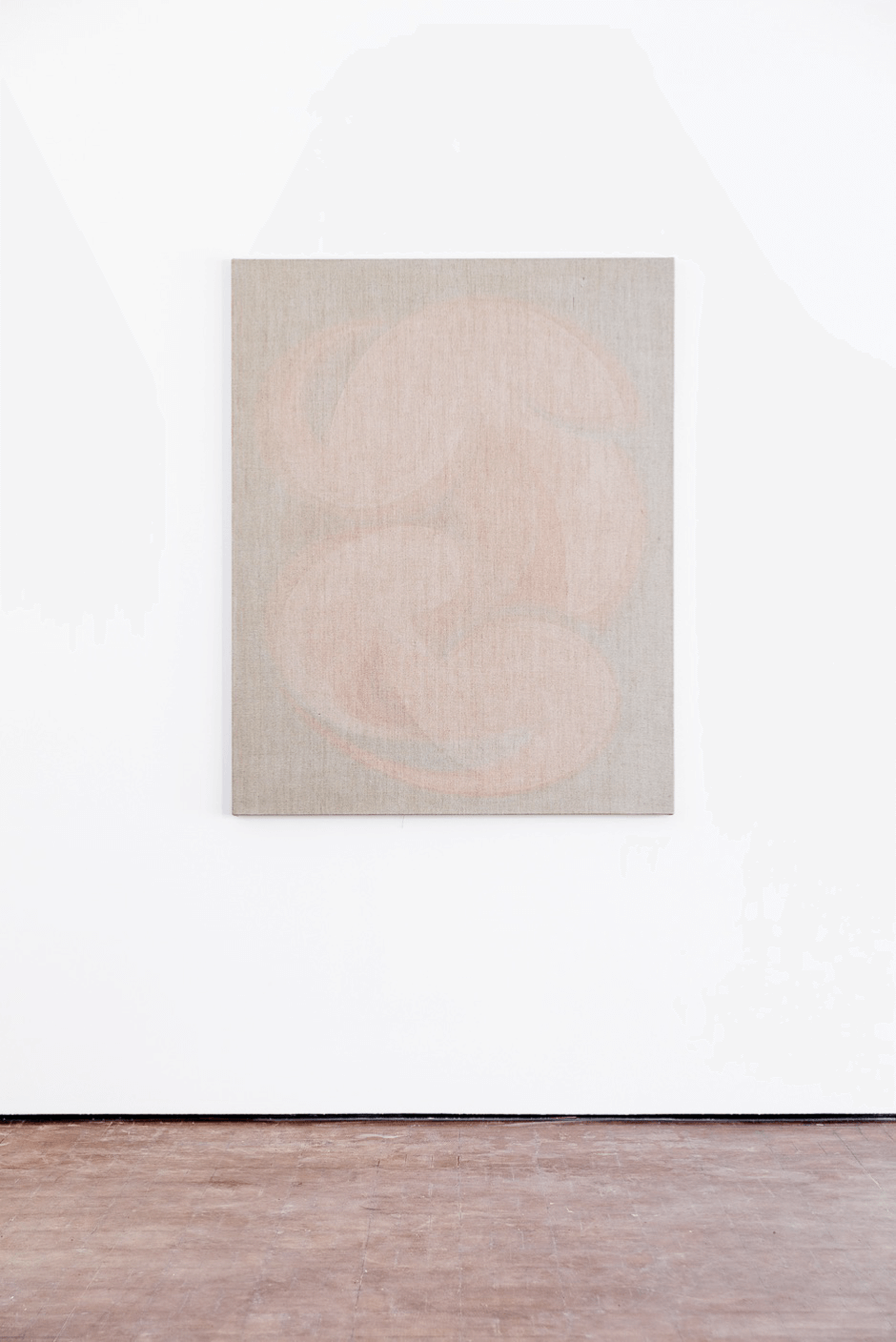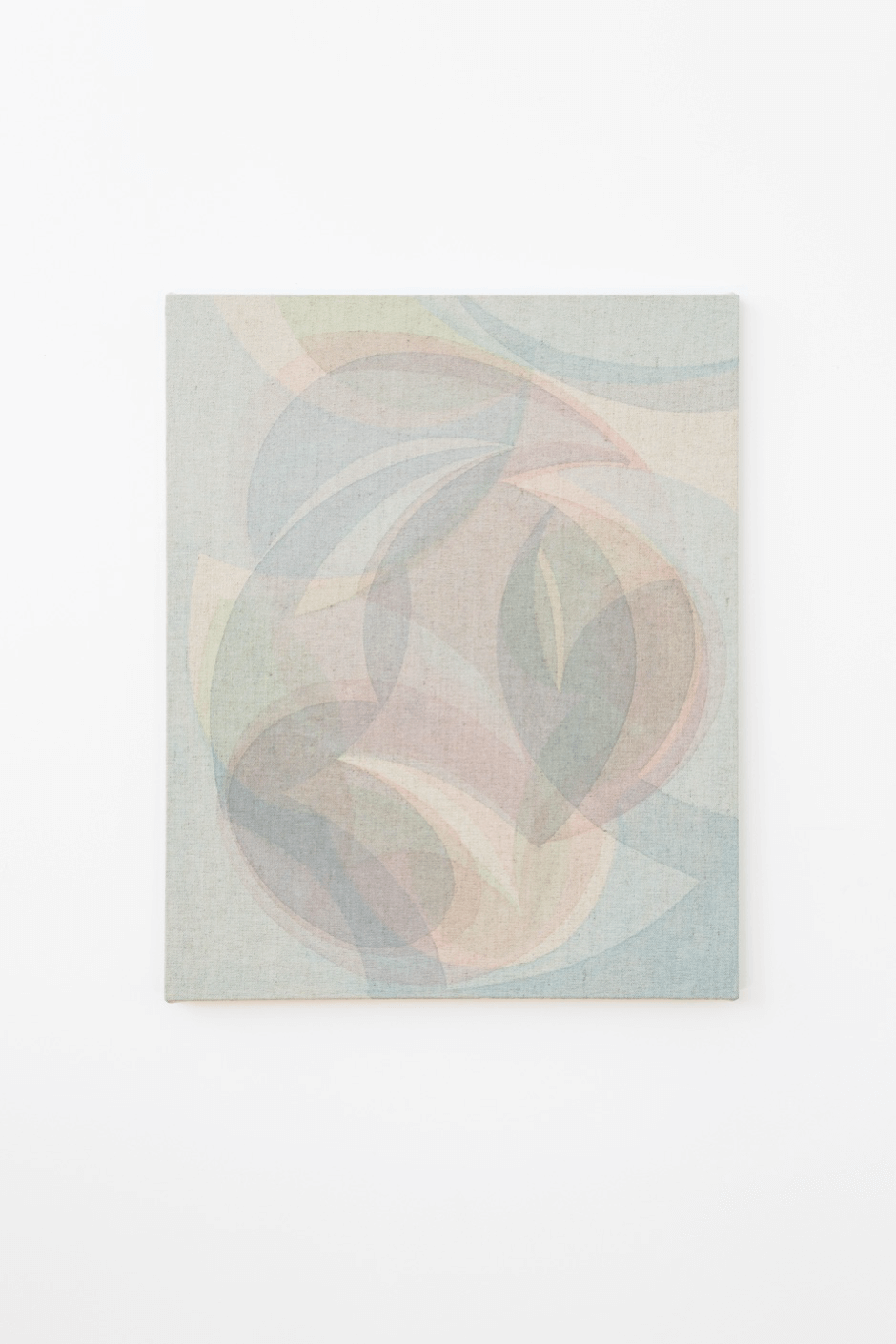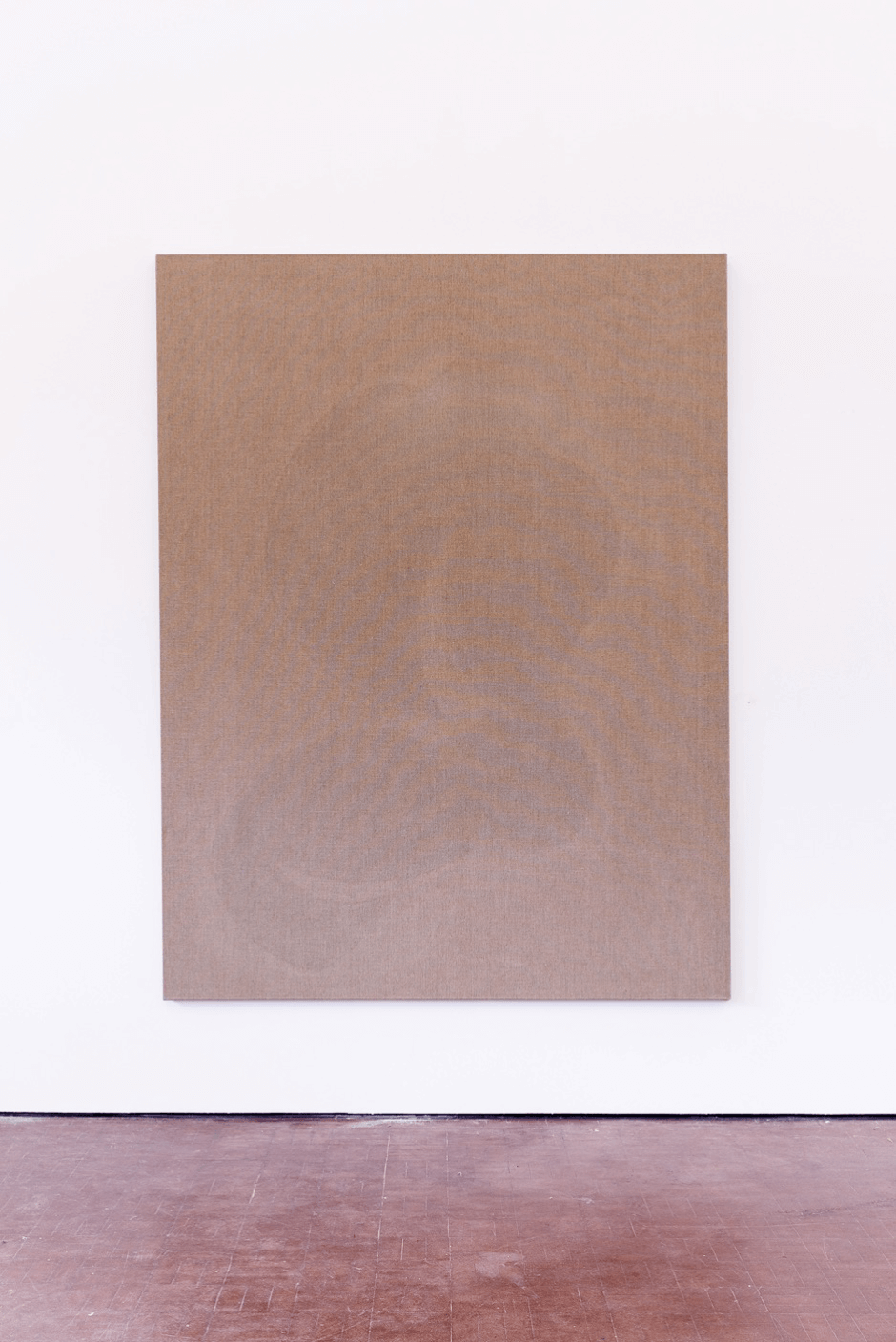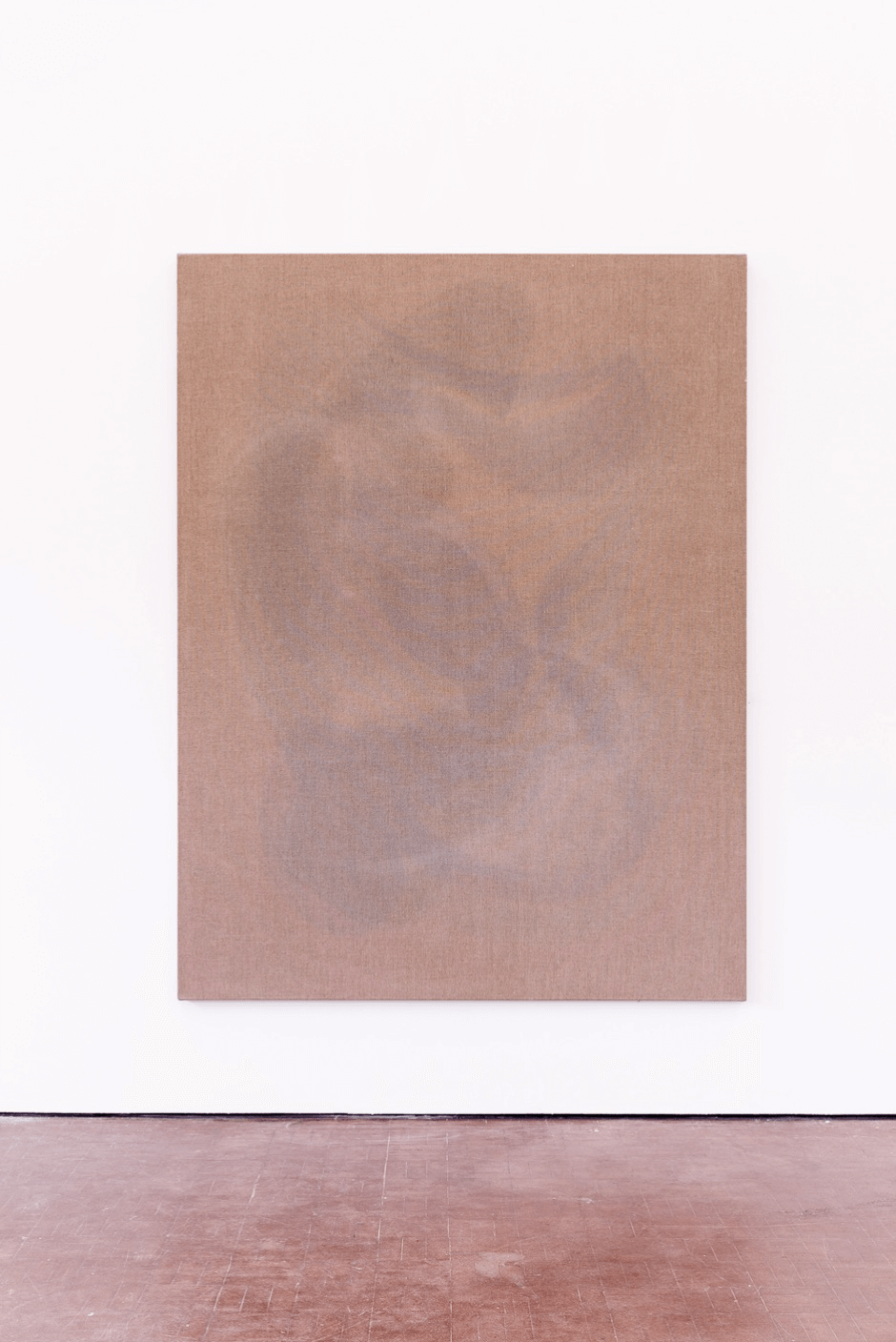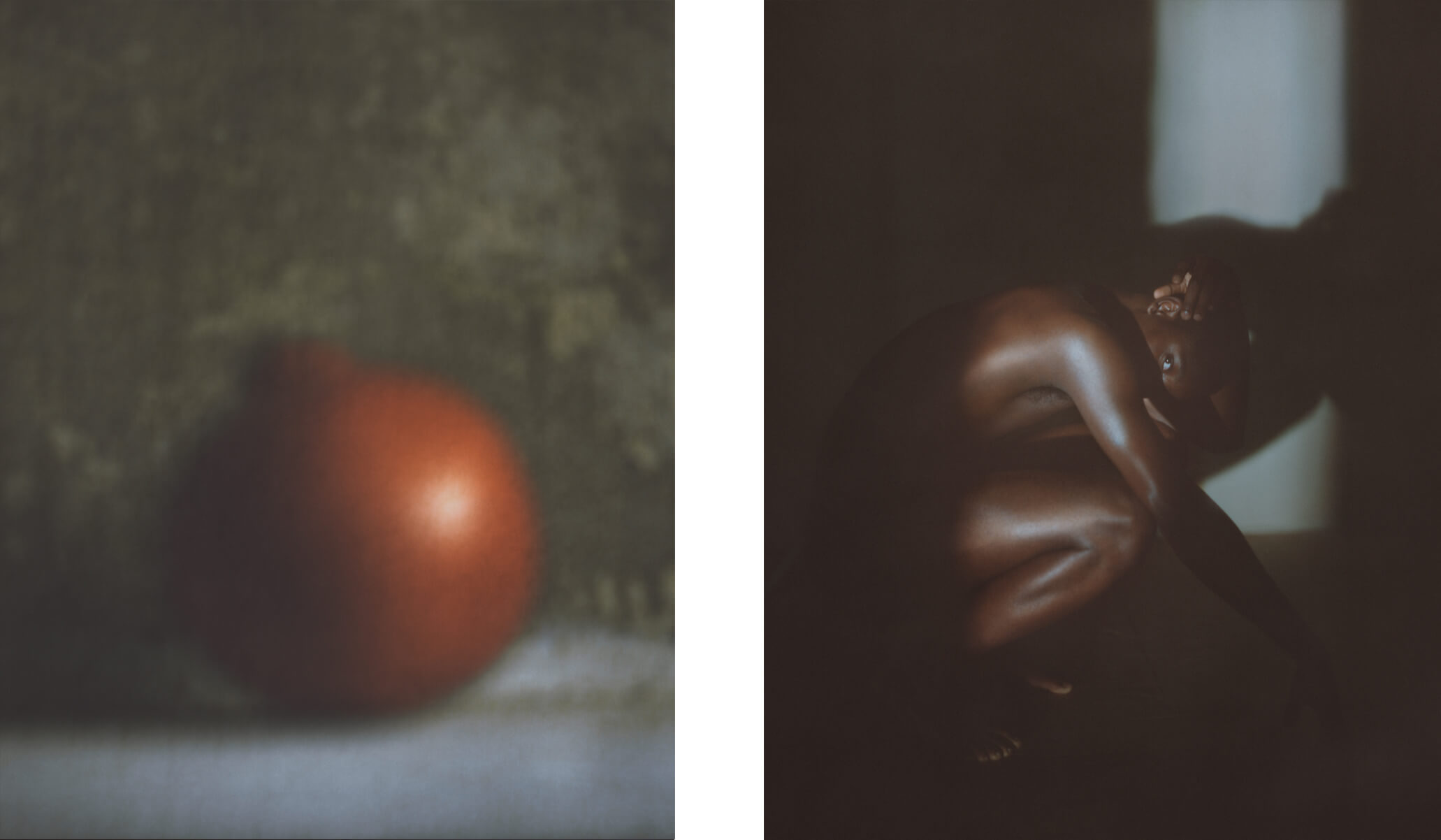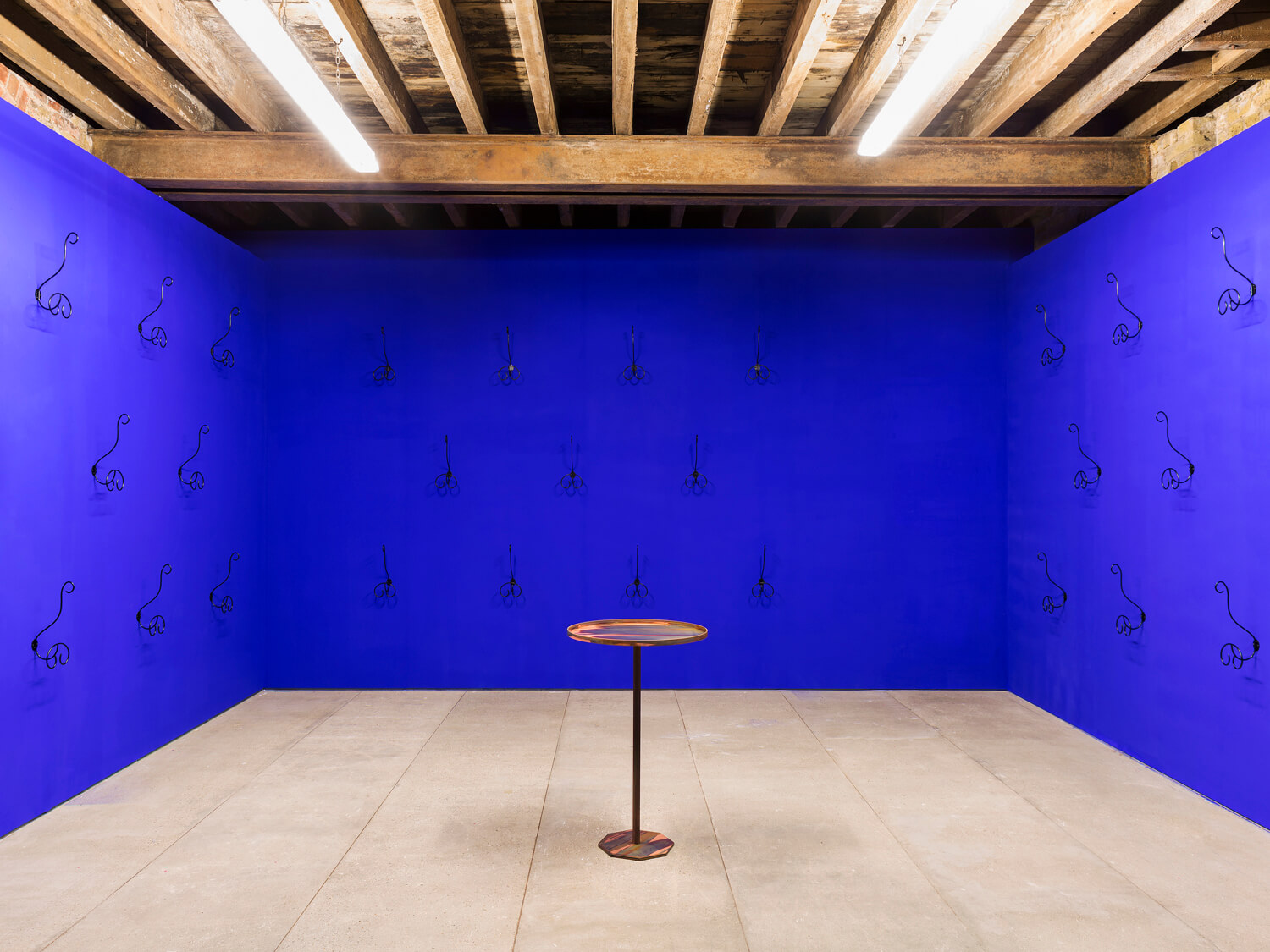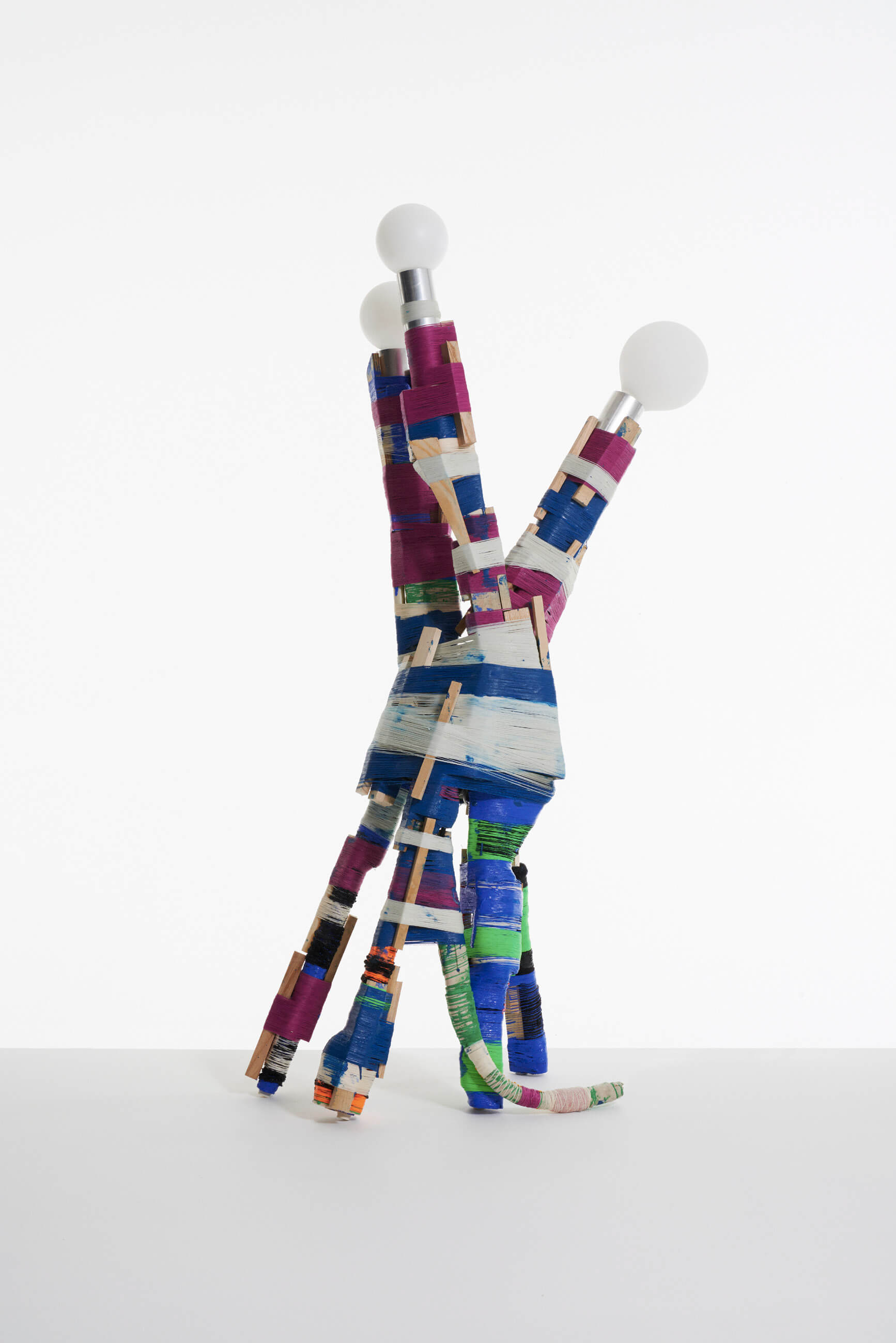Yelena Popova (b. 1978 Urals, Russia) is based in Cambridge for the year ahead at the Girton College residency. Her paintings are quickly associated with constructivism given the formal quality of her translucent geometric layers. These elusive paintings, however, are the entrance doorway to a distinct practice encompassing video and installation.
Popova wants the viewer to see beyond the painting’s image and to notice the canvas, the position of the frame and its relation in space. Painting becomes an object that reaches further than the flat image could. She talks about “making space rather than a painting”
“I was very much enjoying the process of making paintings at the beginning. And then I started questioning the process and the meaning of certain gestures in the context of contemporary culture. How can a painting operate in an over-saturated market of images? Where do you sit as an artist in an image-driven economy?” The gestures that she alludes to are the making itself of the artwork but also display conventions and market value.
Through the making of the work, the choice of pigments and the painting support as much as how it is displayed, Yelena encourages the painted image to disappear; to float away. The layers of her abstractions are so thin and ethereal that you can still see the canvas’ threads. You lose the count of these superimposed veils and yet you see through them. In her figurative paintings, body contours and figures blur onto a ghostly presence. It is the bare matter, hardly tangible and graspable, that lures us into.
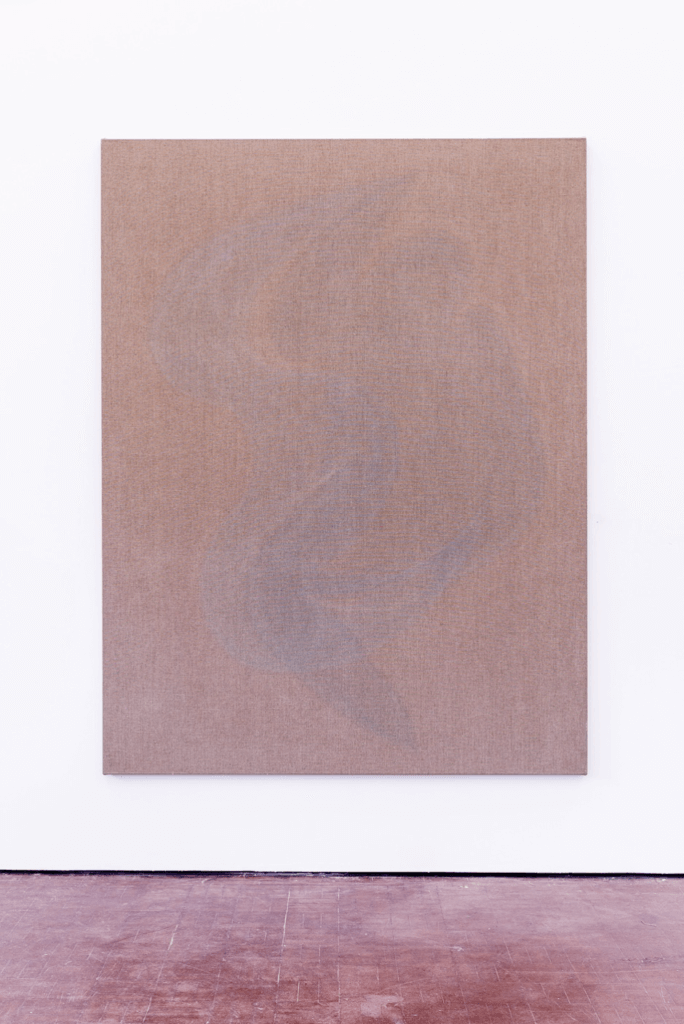
240x160cm
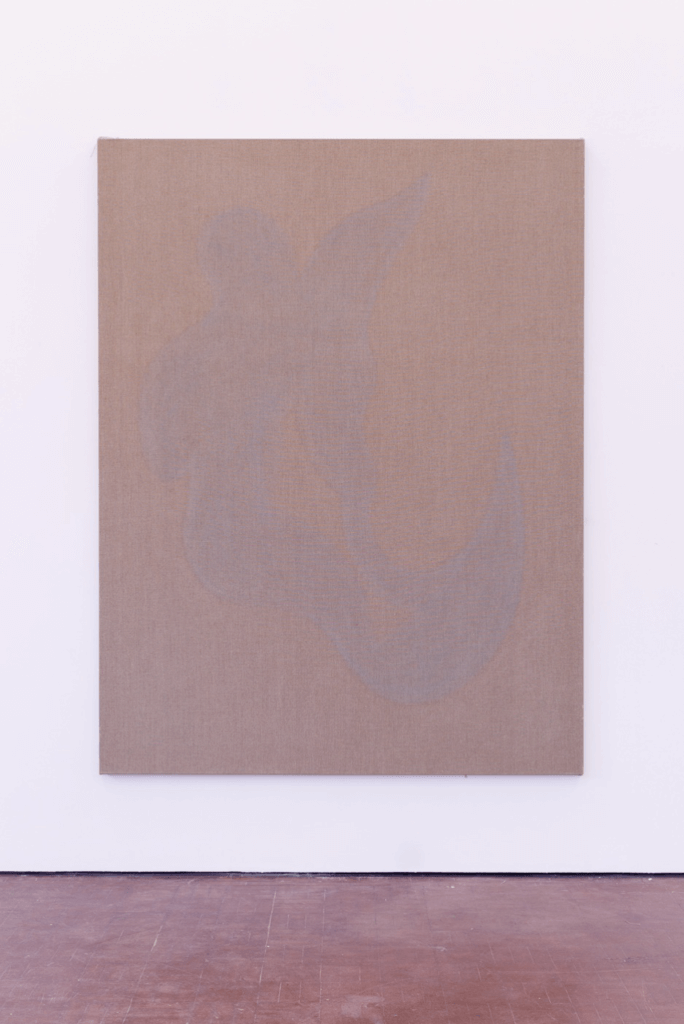
240x160cm
Following this logic, the instability of the image is further questioned through the installation of her paintings. In Cornelius. The Collector’s Case (2015) Yelena has devised transparent frames taking up to 12 paintings on both sides. It folds into a case becoming a self-standing curated archive. It can be transported and exhibited as it is but also marketed and collected as an object, rather than individual images.
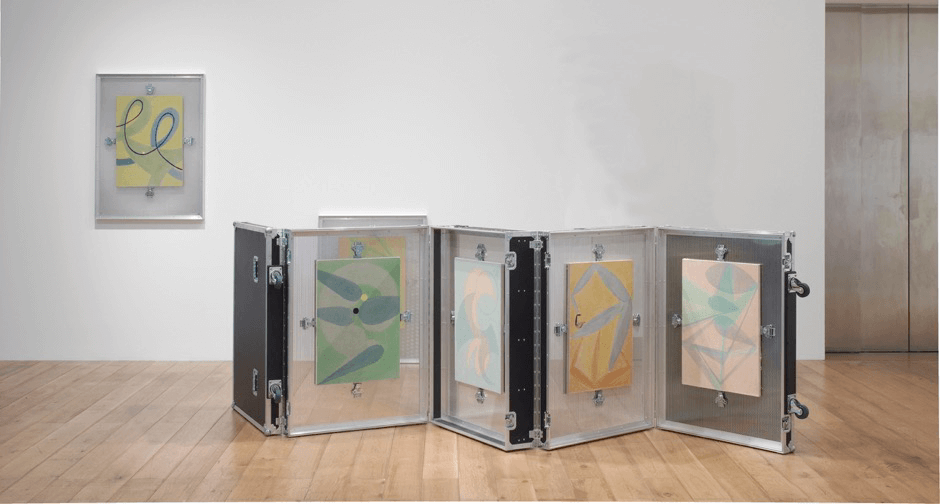
Popova’s videos behave in a similar way to the abstract paintings. This Certifies That (2016) is an infinite video stream performed by a computer according to the code written by the artist and a software developer. The sound is also performed from a code and conceived in layers by composer Rebecca Lee. The computer generates voices and makes random choices based on non-linear text.
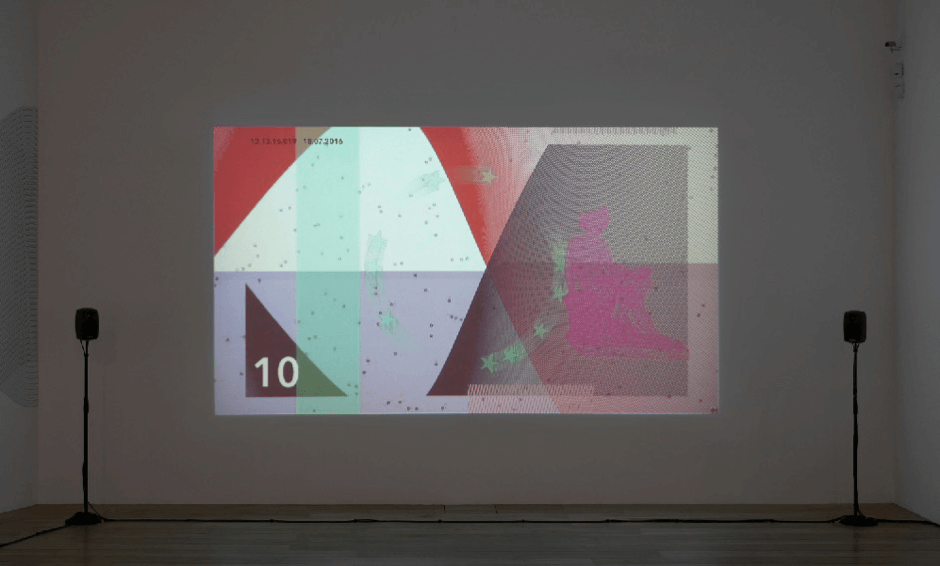
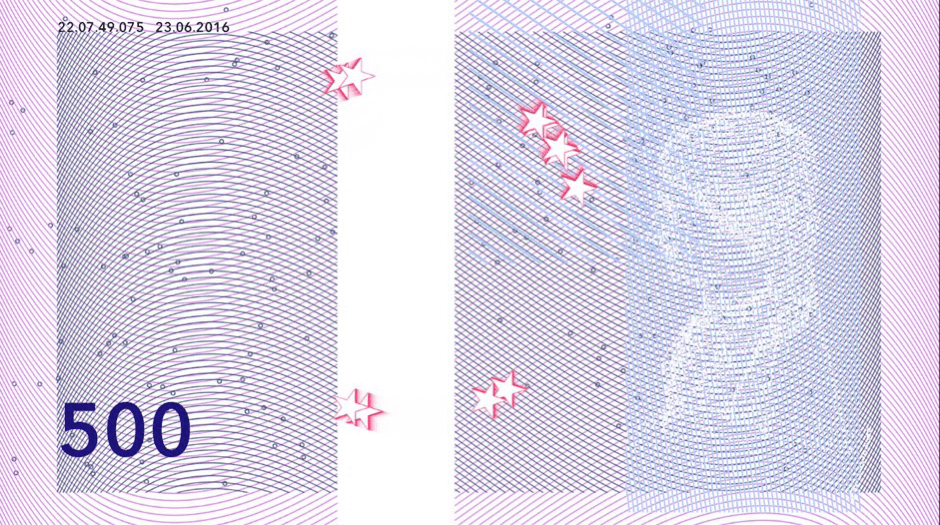
This Certifies That, 2016
Code generated stream. Performed by MAC
The result includes a rotating and swirling network of guilloche patterns, music, text and rotating open-source 3D scans, taken from Oliver Laric’s Lincoln Collection 3Dscans Project. The computer endlessly generates 30 to 60 images per second all with a unique number stating the precise date and time. The piece plays with the overproduction of images but equally with their intangibility.
…
Anyone can make money
Anyone can make virtue
Anyone can make images
Anyone can make goods
Anyone can make value
Anyone can share images
Anyone can trade goods
Anyone can share money
…
Materiality (or immateriality) has a mesmerizing quality in Yelena’s work. During our conversation, there are several times in which we focus our attention on the pigments and recipes that she works on to find the right density, the muted palette and the lightness and transparency of the painted layers. The ingredients include an alchemy of wood ash, soil, crushed bricks, calcined shells, etc. Her latest research on materiality, which she is developing during her residency, involves learning fresco technique.
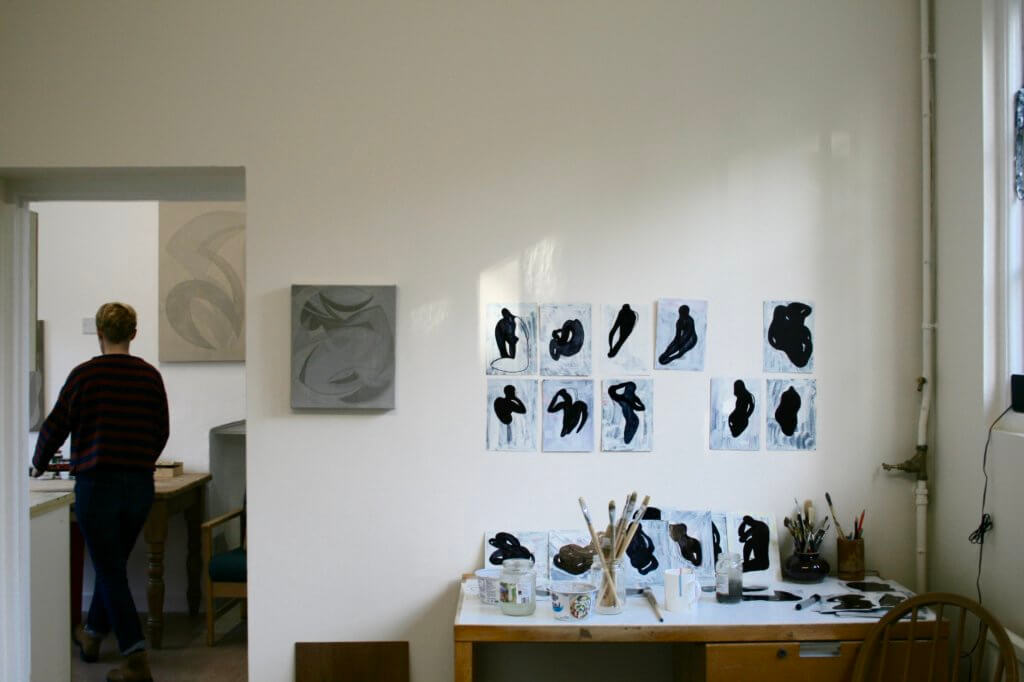
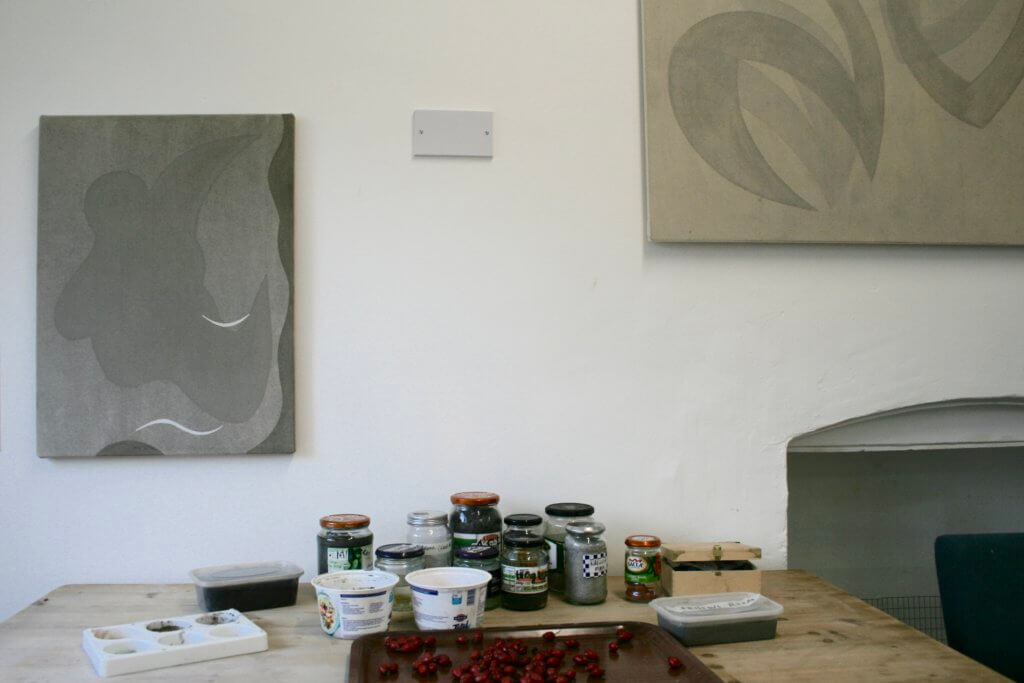
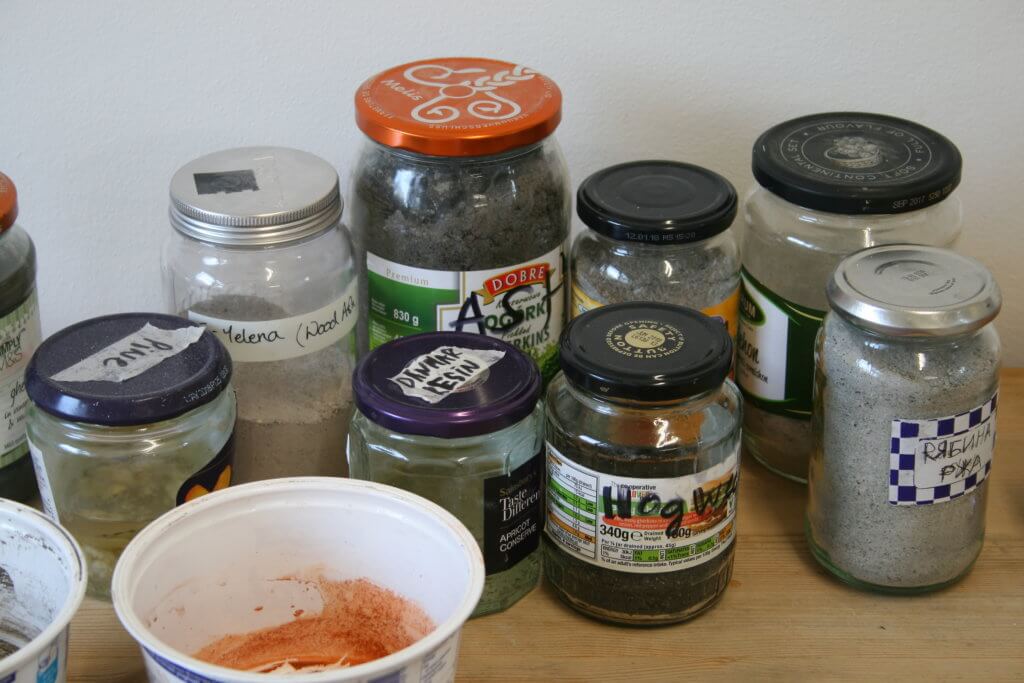
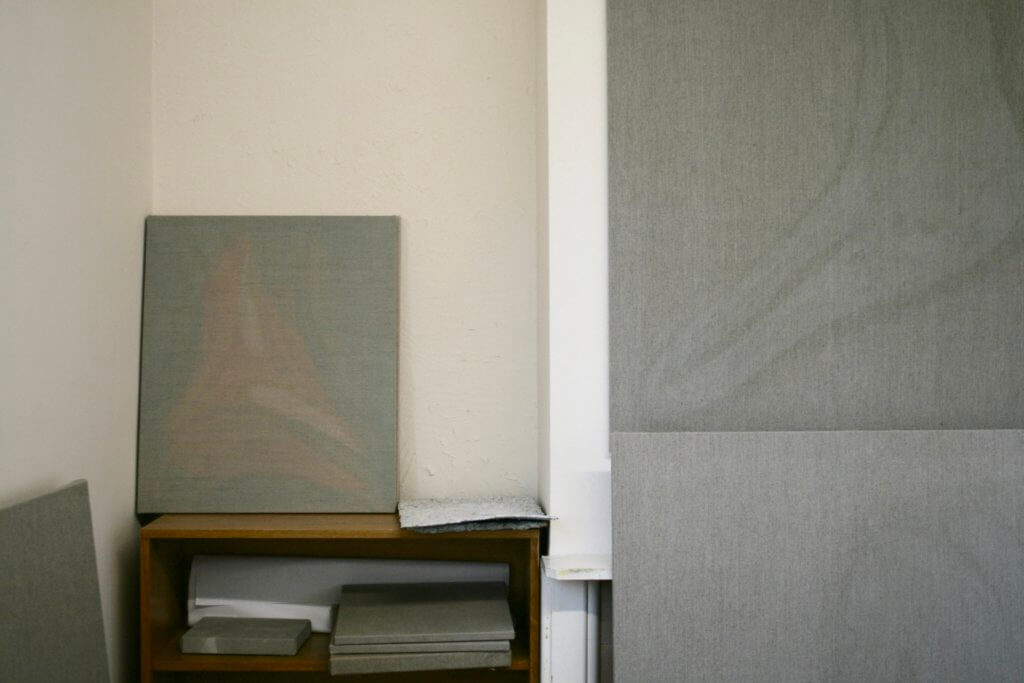 “Fresco is such a traditional and interesting medium and it requires speed which I have in my work. My process is speedy. I was interested in the challenge but also historically it has many references. If my work is resisting this image-driven economy and is trying to see if it can operate outside of the market, the fresco traditionally was used in churches and public spaces. It is space-centered rather than an object.”
“Fresco is such a traditional and interesting medium and it requires speed which I have in my work. My process is speedy. I was interested in the challenge but also historically it has many references. If my work is resisting this image-driven economy and is trying to see if it can operate outside of the market, the fresco traditionally was used in churches and public spaces. It is space-centered rather than an object.”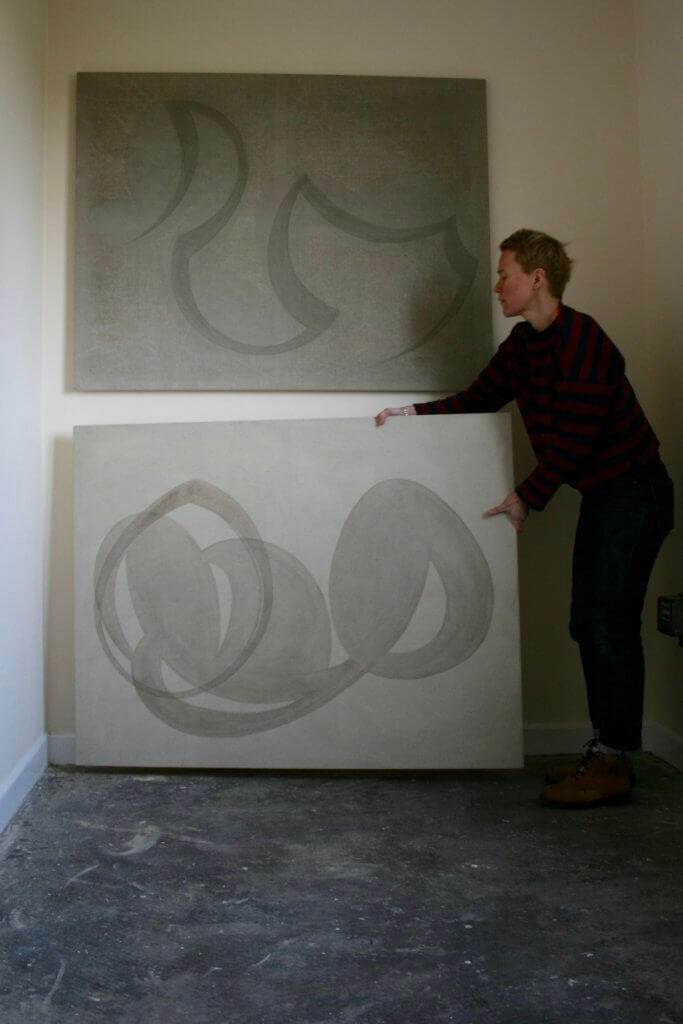
Popova’s images are trying to disappear and to withdraw. Subtlety, lightness and transparency are attributes that come to mind when looking at Yelena’s work. She goes as far as referring to some series as evaporating and invisible paintings. Her inquisitive nature into materials though make me think that she is going to be around for the long run. This one is here to stay.
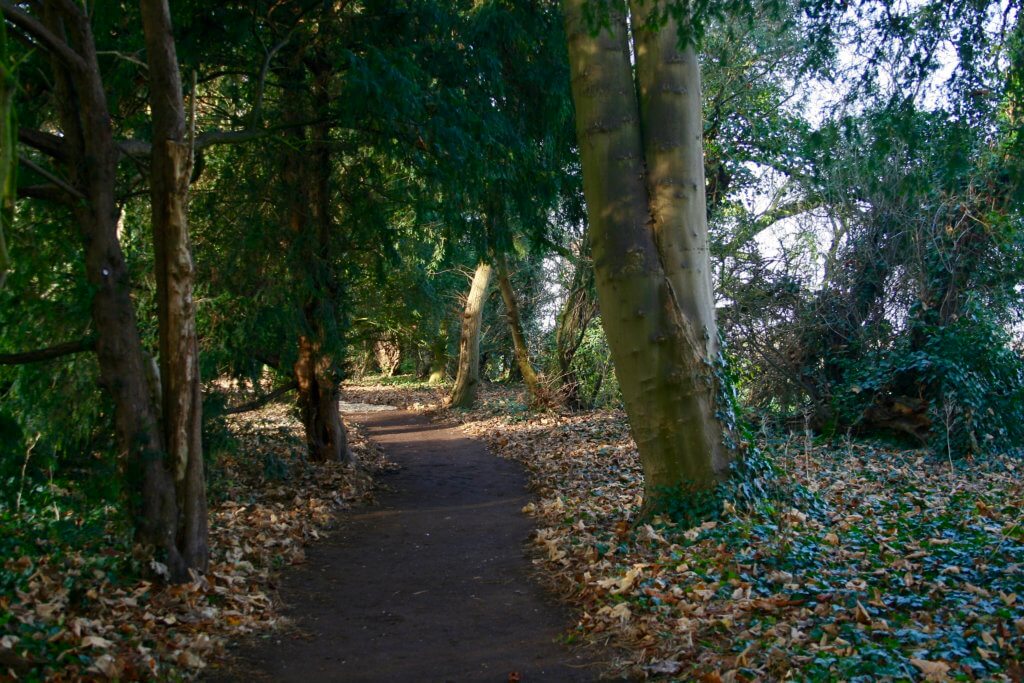
View Yelena Popova’s work, Left to Right at Copperfiled Gallery, London until 20th January 2017; at Central Gallery, Birmingham from the end of January through March 2017 and at Art Rotterdam with Division of Labour in February 2017. Her work has also been included in the recent publication Vitamin P3 by Phaeton Press, 108 international artists revolutionising painting today.
Yelena Popova @yelena_popova

